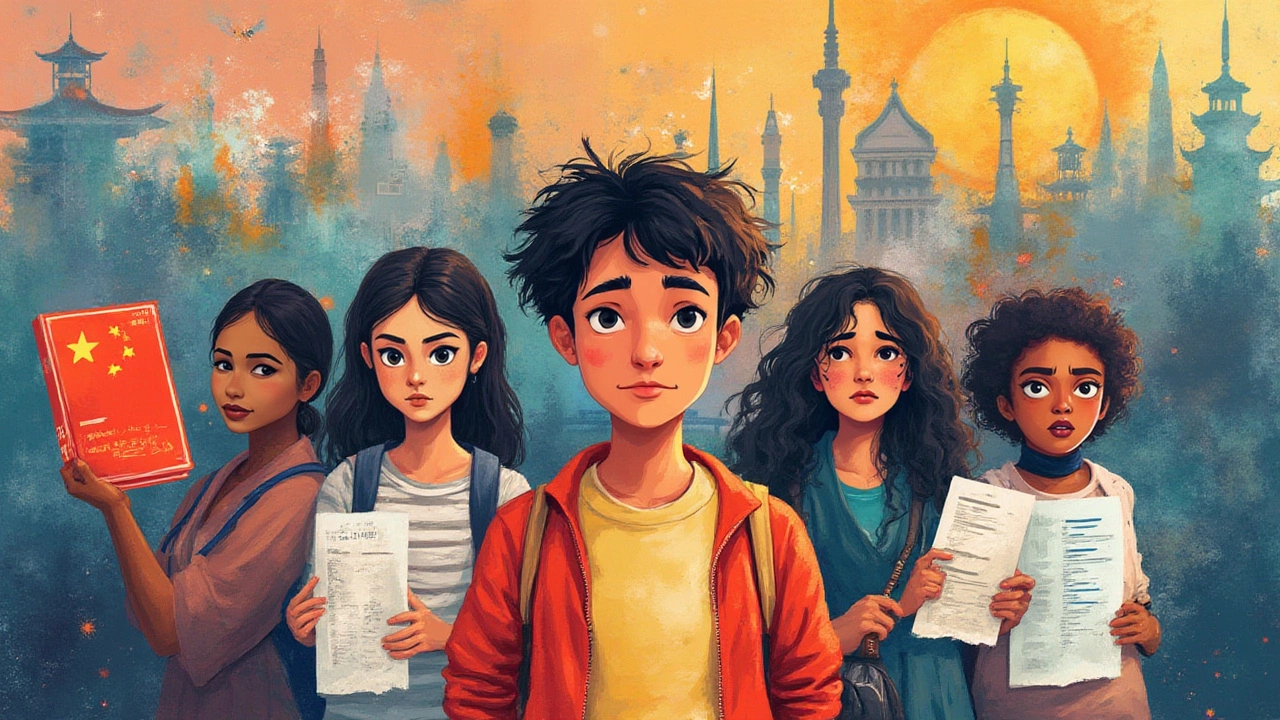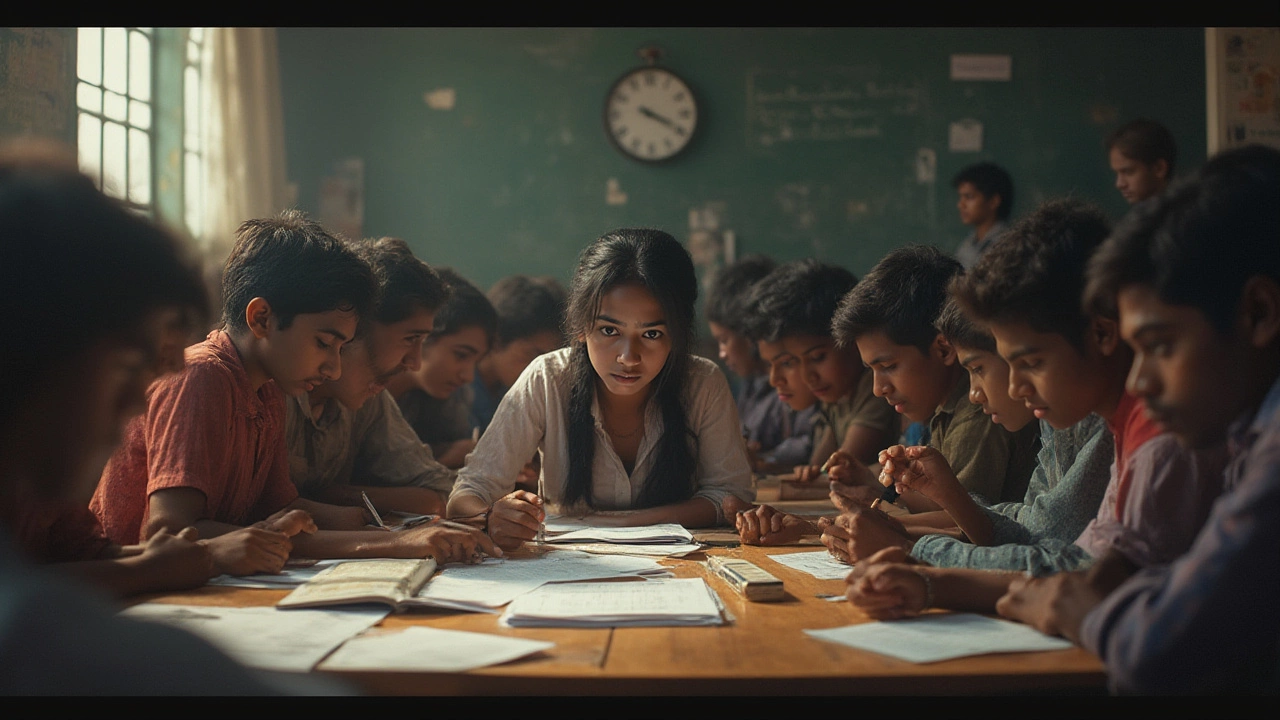Walk into a room with rows of sweaty palms, thumping hearts, and page after page of questions you can’t afford to get wrong. That’s the mood millions of students face each year—not just in your country, but around the globe. While plenty of tests make students lose sleep, only a handful have a clutch so tight they’re practically legendary for the pressure they create. Let’s talk about the world’s most stressful exams, and trust me, some of these stories will make your own school days look like a walk in the park.
Why Are Some Exams So Brutal?
Maybe you’re wondering, "What actually makes an exam stressful?" Sure, the fear of failing is universal, but there’s more to it than that. Depending on the country, one test can decide where you go to college, your entire future career, and sometimes even your family’s hopes and dreams. Now imagine every aunt, uncle, grandparent, and neighbor asking about your results. That’s pressure—amplified.
Let’s break down a few core reasons why certain exams skyrocket stress levels:
- Consequences: Life-changing stakes turn exams into make-or-break moments. One bad day and your dream school (or job) disappears.
- Competition: When millions take the same test, the margin for error shrinks. The difference between success and failure could be a single answer.
- Preparation Time: Some exams require years of prep. It’s not something you can just cram for the night before.
- Parental/Social Pressure: In many countries, your score isn’t just about you—it’s about family reputation, social standing, and more.
- Exam Format: Unpredictable questions, hours-long sessions, or trick scenarios can turn stress levels up to eleven.
| Exam | Country | No. of Test-Takers (2024) | Main Outcome |
|---|---|---|---|
| Gaokao | China | 13 million+ | University admissions |
| UPSC Civil Services | India | 1 million+ | Officer positions in government |
| CSAT (Suneung) | South Korea | 500,000+ | University admissions |
| Bar Exam (USA) | USA | Approx. 80,000 | Law practice license |
| Entrance to University of Tokyo | Japan | Hundreds of thousands | Admission to top school |
The psychological impact is no joke, either. The British Medical Journal reported 2022 data linking high-stakes exams with increased rates of anxiety and depression, especially among teens. For context, stress among Chinese students prepping for extreme tests like the Gaokao is known as "yali," a word that carries a lot more weight than its English counterpart. These aren’t just ordinary tests—they shape lives and entire family histories.
The Global Teacher Prize laureate Andria Zafirakou said it well:
“Exams that decide the fate of a young person’s future in a handful of hours are always going to be brutal. But when you add a nation’s expectations, you create a pressure-cooker that few adults could handle, let alone teenagers.”

The Gaokao: Exam or Life-or-Death Battle?
If we’re searching for the “most stressful exam in the world,” the Chinese Gaokao steals the spotlight every year. Think of it as the Olympics of testing&mash;except the competition is fiercer, and the rewards and punishments even more life-altering.
Here’s what you need to know about the Gaokao:
- It’s huge. Over 13 million young people sit for it every June. The streets go quiet, air traffic freezes during listening portions, and parents camp outside schools to pray for their kids.
- Duration: It can stretch up to nine grueling hours over two or three days. The exam covers Chinese, math, a foreign language (usually English), and either science or humanities subjects, depending on your track.
- Zero-tolerance for mistakes: A single blunder can take top universities right off the table.
- All-or-nothing: China’s top universities require sky-high scores. Getting in heats up your odds for a great job and future, while lower scores limit you—for good.
- Prep time: Students start prepping seriously by middle school, if not younger. Cram schools are booming businesses. Some families even move to the best districts so their kids can get better schooling. The best-known region, Maotanchang, is called the “Gaokao Factory” for pumping out students in test-taking bootcamps, and the whole local economy revolves around the test.
- Social impact: Nobody wants to disappoint their parents. Generations pin hopes for a better life on their kids’ results. That’s why parents cook “lucky” foods, temples hand out “blessing” pencils, and entire towns ban construction for fear of disturbing test-takers.
It’s not just physical tolls. According to China’s Ministry of Education, mental health hotlines even spike during Gaokao week. Hospitals set up "exam emergency clinics" for last-minute medical issues—think sudden panic attacks or stress migraines.
You might ask, “Is it really the most stressful exam?” Well, it’s hard to find an exam with higher stakes and wider effects. Elite universities like Tsinghua and Peking accept less than 0.1% of Gaokao takers. Wealth, jobs, and even marriage prospects can depend on that one score. There’s a reason families call it "the dragon gate": those who pass transform their lives, those who fail might be stuck on the bottom rung for decades.
Some dramatic cases stick out. In 2021, a student in Anhui province scored two points less than she needed for Peking University, sparking nationwide debate, tears, and a viral campaign for reevaluation—she became a symbol for millions under the same pressure. Teachers speak of mental breakdowns, extended hospital stays, and even “cram school” students living far from their parents for years to focus.
If you’re prepping for any tough exam, borrowing a few strategies from Gaokao survivors won’t hurt:
- Start with a ruthless study plan; break topics into daily chunks and stick to your schedule.
- Find your best way to memorize—write notes by hand, use flashcards, or draw diagrams.
- Practice old exams under real timed conditions. Ask for feedback instead of cramming alone.
- Take daily breaks and move your body. Exercise is proven to improve memory and fight stress hormones.
- Parents and friends: Be a support system, not a source of more pressure. Celebrate effort, not just results.
You don’t need to become a robot. Chinese psychologist Xue Xing noted, “Healthy sleep, time with friends, and laughter aren’t just luxuries for exam students—they’re survival tools.”

Other Global Exam Nightmares and Survival Tips
Gaokao isn’t the only beast. Zoom out and almost every country has its own terrifying gatekeeper exam. Let’s go on a quick world tour:
- India’s UPSC Civil Services: Every year, over a million apply, only around a thousand make it through. The test runs for months and covers history, ethics, even the Indian constitution. Success gives you government roles, prestige, and sometimes a shot at steering national policy. Failure can trigger years of "second attempt" cycles.
- Korean CSAT (Suneung): In South Korea, this annual college entrance exam stops all flights, banks open late, markets close early—no distractions allowed. Parents gather at temples, city buses reroute, and police escort late students in. Universities and major jobs hinge on a few percentile points.
- Japan’s National Center Test/EJU: High-stakes entrance to the elite Tokyo University is famous for "examination hell." The term “ronin” refers to students who don’t make it on their first try and spend years in test limbo.
- France’s Baccalauréat: It opens the doors not only to universities, but also to specific fields. The test starts at 8 a.m. and can last until 6 p.m. for some tracks.
- US Bar Examination: Aspiring lawyers spend months studying, with a two-day test determining if they can even begin to work in their state.
- Medical Board Exams (Worldwide): Doctors often take the USMLE, PLAB (UK), or India’s NEET PG—unbearably tough, with pass rates sometimes under 50% for first attempts.
What’s wild is how culture affects coping mechanisms. Korean students rely on group late-night study sessions and communal snacks. Indian students form online study squads and share digital notes. In France, “bac philo” is so legendary it inspires memes every year—one big question inspires both dread and jokes in equal measure.
Across the world, tech has both helped and hurt. Study apps make flashcards and practice tests easier. At the same time, constant notifications or competitiveness on social media can increase anxiety. Some students block all non-study apps for months or even go offline to focus.
You might be staring down a big exam right now or helping someone who is. Here are some real survival tips from students who crushed high-pressure exams:
- Mix up study sessions. Alternate between subjects and change locations—it keeps your brain fresh.
- Don’t skip meals, and don’t overdose on caffeine. Your brain needs balanced fuel, not just adrenaline.
- Tame the perfectionist monster. One mistake won’t ruin your entire future, though it might feel like it in the moment.
- Learn basic meditation or breathing exercises. Ten minutes can reset a spiraling brain.
- For parents: Talk about healthy coping, and don’t compare your child’s scores to others at family gatherings. Support is worth more than lectures.
Here’s a number that says it all: A Harvard study of almost 150,000 students in high-pressure environments found that performance improved by 12% in students who took regular 20-minute movement breaks and reached out to friends for emotional support.
So, which exam is the most stressful? The answer depends on where you live, the consequences of success or failure, and how well you handle pressure. But if you ask around, Gaokao, UPSC, and South Korea’s CSAT are solid contenders for the education world’s most merciless stress-fests. Whatever you face, remember that preparation, a solid support system, and your own resilience matter more than any scoreboard on test day.
